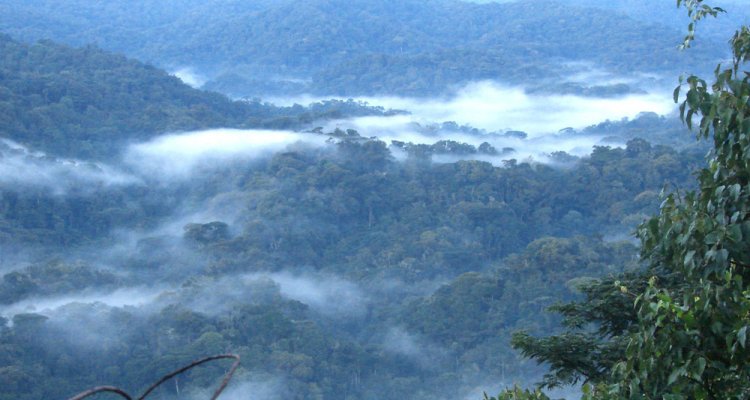
News
African tropical montane forests store more carbon than was thought
African montane forests are very valuable. They store vast amounts of carbon, and thereby have a key role in tackling climate change. Scientists studying tropical forests in Africa’s mountains were surprised to uncover how much carbon they store. But also how fast some of these forests are being cleared.
The international study reported in Nature, found that tropical Africa’s mountain forests store around 150 tonnes of carbon per hectare. This means that keeping a hectare of forest standing saves CO2 emissions equivalent to powering 100 homes with electricity for one year. This is more carbon per unit area than found in forests on mountains elsewhere in the tropics or even in the Amazon’s lowlands. Previous estimates had greatly undervalued this contribution.
Scientists measured 72,000 trees in 44 mountain sites in 12 African countries, from Guinea to Ethiopia, and south to Mozambique. In each mountain site they established plots where they recorded the diameter, height and species of every tree.
The international team also investigated how much tropical mountain forest had been lost from the African continent in the past 20 years. They found that 0.8 million hectares have been lost, mostly in the Democratic Republic of the Congo, Uganda and Ethiopia, emitting over 450 million tonnes of CO22 into the atmosphere. If current deforestation rates continue, a further 0.5 million hectares of these forests would be lost by 2030.
Lead author Dr Aida Cuni-Sanchez, from the University of York’s Department of Environment and Geography and at Norwegian University of Life Sciences, said: “in Africa we found the same carbon store per unit area in lowland and mountain forests. Contrary to what we expected, large trees remain abundant in mountain forests, and these large trees (defined as having diameters over 70 cm) store a lot of carbon. While we know what makes African forests special, we don’t yet know why they are different. It is possible that in Africa, the presence of large herbivores such as elephants plays an important role in mountain forest ecology, as these large animals disperse seeds and nutrients, and eat small trees creating space for others to grow larger, but this requires further investigation.”
Most African nations have committed large amounts of land to forest restoration under the Bonn Challenge. Although forest restoration is important to mitigate climate change, avoiding deforestation is a greater priority.
Co-author Professor Douglas Sheil, who heads Wageningen’s Forest Ecology and Forest Management group noted: “We knew that these forests hosted numerous unique plants and animals and provided many benefits, most notably water, to surrounding people. I have worked in these forests. Many are stunningly beautiful. Their ongoing loss is a tragedy but people are often poor and lack viable options to clearing and otherwise degrading these forests. Our recognition of the considerable carbon costs of losing these forests adds additional weight, and potentially finance, to the already compelling case for protection.”
Co-author Dr Gerard Imani, at the Department of Biology, Université Oficielle de Bukavu in DR Congo, added: “Carbon finance mechanisms could help improve conservation interventions on the ground – even within protected areas, deforestation, forest degradation and defaunation remain a challenge.”